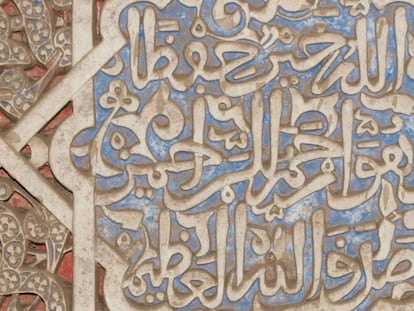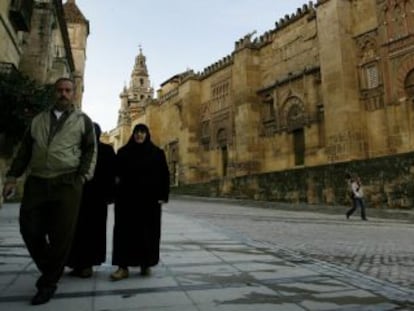The secret tunnels of Spain’s Alhambra
The world-famous palace complex in Granada is criss-crossed with a network of defensive features
On the scrub-covered hillside of the Alhambra in Granada, which slopes down to the Darro river, a cave that is partially concealed by ivy opens up into an underground gallery, which in turn leads up to this palatial complex built by the Nasrids, the last Muslim dynasty on the Iberian peninsula.
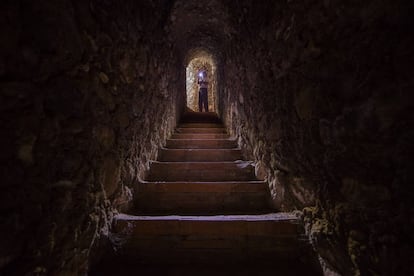
Who knows how many people descended the 200 steps in the dark, fleeing evil plots fostered by their relatives back in the palace, or rushing to meet their lovers for a night of passion?
Some experts say that this underground passage might have provided access to a grove housing exotic beasts brought over from distant lands – a habit that was already popular among powerful sultans.
The Alhambra is planning to restore the hillside and build a walk that will run parallel to the Darro
But the cave is closed to the public, and its mysteries a subject of research for historians.
It is not the only secret passageway under the Alhambra. EL PAÍS visited several of them in the company of Jesús Bermúdez, head of conservation at the Alhambra Council.
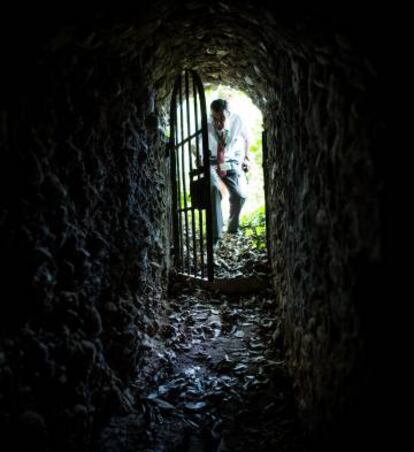
“The humble Alhambra,” as he likes to call it, shows no signs of the beauty that awaits within the complex proper. This underground network filled several roles. One of these was storage: the subterranean silos held wheat and other grain. But they also served as holding cells for captives waiting to be exchanged for other prisoners.
The first dungeon that Bermúdez shows is circular, and its naked walls curve into the shape of a cheese dish, except there is no cheese around, although there may be a few mice. There are still remains of bricks on the ground that attest to the space reserved for each prisoner. These were no ordinary captives, notes Bermúdez: these were worth something, just as Miguel de Cervantes, author of Don Quixote, was a valuable prisoner when he was held for ransom in Algiers from 1575 to 1580.
So far, 21 dungeons have turned up on the grounds of the Alhambra, some of them after a gardener found himself sinking into the earth. Six were in the military area, or alcazaba. A hole at the top was the only connection to the outside world.
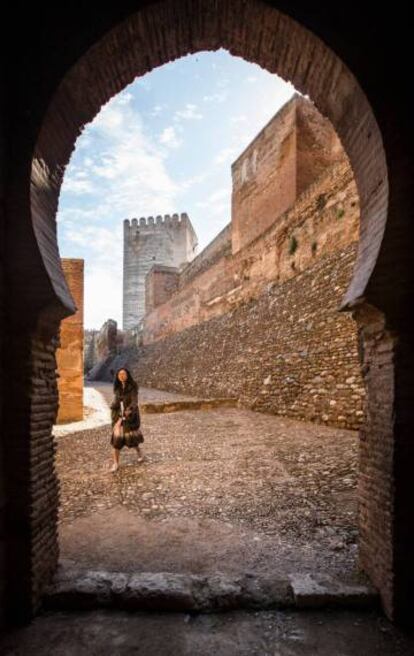
And while Sultan Muhammad V received ambassadors and other dignitaries in the throne room, a no-frills gallery located just beneath him housed the guards. A crack in the thick wall just barely allowed the watchmen to see whether it was daytime or nighttime. A maze of entry and exit points, together with the wall, made the monument virtually immune to attack.
The Alhambra authorities, explains Bermúdez, are planning to restore the hillside and build a walk that will run parallel to the Darro, mirroring the other shore. But it seems unlikely that the tunnels will be opened to the public.
Each year, over two million tourists visit this World Heritage Site where construction first began in 1237. “Of course they do damage,” says Bermúdez.
But that’s not the only reason the tunnels will most likely remain closed. Security is another key issue.
English version by Susana Urra.
Tu suscripción se está usando en otro dispositivo
¿Quieres añadir otro usuario a tu suscripción?
Si continúas leyendo en este dispositivo, no se podrá leer en el otro.
FlechaTu suscripción se está usando en otro dispositivo y solo puedes acceder a EL PAÍS desde un dispositivo a la vez.
Si quieres compartir tu cuenta, cambia tu suscripción a la modalidad Premium, así podrás añadir otro usuario. Cada uno accederá con su propia cuenta de email, lo que os permitirá personalizar vuestra experiencia en EL PAÍS.
En el caso de no saber quién está usando tu cuenta, te recomendamos cambiar tu contraseña aquí.
Si decides continuar compartiendo tu cuenta, este mensaje se mostrará en tu dispositivo y en el de la otra persona que está usando tu cuenta de forma indefinida, afectando a tu experiencia de lectura. Puedes consultar aquí los términos y condiciones de la suscripción digital.

